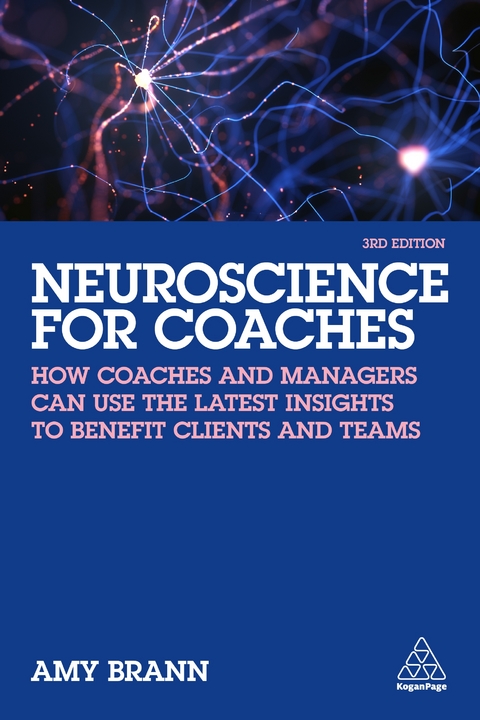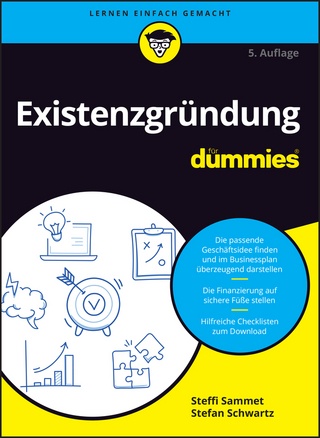
Neuroscience for Coaches
Kogan Page Ltd (Verlag)
978-1-3986-0419-3 (ISBN)
Many coaching tools and techniques are now well established, but how do they actually work? The third edition of Neuroscience for Coaches answers this question to help coaches and managers deliver greater value to clients and employees.
Based on extensive research, Neuroscience for Coaches provides a clear explanation of the aspects of neuroscience that are relevant to coaching so coaches can describe to clients why particular techniques work and the benefits to be gained from using them. It also features interviews with Marshall Goldsmith, Susan Grandfield, Christian van Nieuwerburgh and Kim Morgan on topics including mindfulness and behaviour change in coaching.
This fully updated third edition covers the latest neuroscientific research on key brain areas and their functions, such as the Prefrontal cortex and Amygdala which affect attention, processing and emotional regulation. With tips and insights throughout, it crucially demonstrates the ways in which coaches and managers who coach can use this information effectively and practically in their everyday work. Neuroscience for Coaches is a vital resource for improving coaching practice with the latest scientific developments, tools and techniques.
Amy Brann is an author, consultant and global speaker. She is the founder of Synaptic Potential, through which she works with companies including Warner Brothers, EY, Twinings, the NHS and Mondelez International to help them better understand their teams, clients and organizations as a whole. Based in Warwick, UK, she is also the author of Make Your Brain Work, published by Kogan Page. Amy was named by HR Magazine as one of the most influential HR thinkers in 2023.
Chapter - 00: Introduction;
Section - ONE: Brain areas;
Chapter - 01: Prefrontal Cortex;
Chapter - 02: Basal Ganglia;
Chapter - 03: Striatum;
Chapter - 04: Insular Cortex;
Chapter - 05: Amygdala;
Chapter - 06: Anterior Cingulate Cortex;
Chapter - 07: Hypothalamus;
Chapter - 08: Hippocampus;
Chapter - 09: Cerebellum;
Section - TWO: Brain chemicals;
Chapter - 10: Cortisol;
Chapter - 11: Dopamine;
Chapter - 12: Oxytocin;
Chapter - 13: Serotonin;
Chapter - 14: Noradrenaline;
Chapter - 15: GABA & Glutamate;
Section - THREE: Foundational brain concepts;
Chapter - 16: Neurons & Synapses;
Chapter - 17: Neuroplasticity;
Chapter - 18: Threat / Reward response;
Chapter - 19: Neuroimaging;
Chapter - 20: Working memory;
Chapter - 21: HPA Axis;
Chapter - 22: Mirror neurons;
Section - FOUR: Brain networks;
Chapter - 23: Brain networks;
Section - FIVE: The quantum brain;
Chapter - 24: The quantum brain;
Section - SIX: Neuroscience of classic Coaching areas;
Chapter - 25: Self control / willpower;
Chapter - 26: Optimism;
Chapter - 27: Mindfulness;
Chapter - 28: Expectations;
Chapter - 29: Beliefs;
Chapter - 30: The Foundational Four - Safe Space, Listening, Questioning, Reflecting
Chapter - 31: Flow;
Chapter - 32: Motivation;
Chapter - 33: Decision-making;
Chapter - 34: Goals;
Chapter - 35: Habits;
Section - SEVEN: Neuroscience of not so classic Coaching areas;
Chapter - 36: Choice Architecture;
Chapter - 37: False Memory;
Chapter - 38: Trust;
Chapter - 39: Fairness;
Chapter - 40: Loneliness;
Chapter - 41: Conclusion
| Erscheinungsdatum | 22.02.2022 |
|---|---|
| Verlagsort | London |
| Sprache | englisch |
| Maße | 158 x 235 mm |
| Gewicht | 505 g |
| Themenwelt | Sachbuch/Ratgeber ► Beruf / Finanzen / Recht / Wirtschaft ► Wirtschaft |
| Naturwissenschaften ► Biologie ► Humanbiologie | |
| Naturwissenschaften ► Biologie ► Zoologie | |
| Wirtschaft ► Betriebswirtschaft / Management ► Personalwesen | |
| ISBN-10 | 1-3986-0419-4 / 1398604194 |
| ISBN-13 | 978-1-3986-0419-3 / 9781398604193 |
| Zustand | Neuware |
| Informationen gemäß Produktsicherheitsverordnung (GPSR) | |
| Haben Sie eine Frage zum Produkt? |
aus dem Bereich


